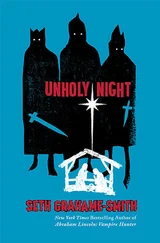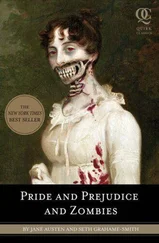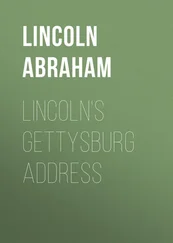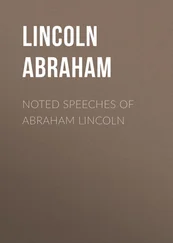II
Three days after the fall of Fort Sumter, Virginia seceded from the Union, and the Confederate capital was relocated to its industrial heart, Richmond. Over the next few weeks, Arkansas, Tennessee, and North Carolina followed. There were now eleven states in the Confederacy, with a combined population of nine million people (four million of which were slaves). Even so, most Northerners were convinced that the war would be a short one, and that the “sechers” (secessionists) would be stamped out by summer’s end.
They had reason to be confident. The North, after all, had more than twice the population of the South. It had railroads that could speed troops and provisions to the battlefield in a fraction of the time; superior factories to supply boots and ammunition; warships to blockade ports and pound coastal cities. Pro-Union newspapers urged the president to bring about a “swift end to this unpleasantness.” Cries of “Forward to Richmond!” were heard across the North. Henry Sturges agreed. In a telegram dated July 15th, he used a quote from Shakespeare to send Abe a coded message *: strike Richmond now .
Abraham,
“In God’s name, cheerly on, courageous friends, to reap the harvest of perpetual peace, by this one bloody trial of sharp war.” **
—H
Abe followed the advice. The day after receiving the letter, he ordered the largest fighting force ever assembled on North American soil—35,000 men—to march from Washington to Richmond under the command of Brigadier General Irvin McDowell. Most of McDowell’s soldiers came from the 75,000 militiamen hurriedly called up in the wake of Fort Sumter. They were, for the most part, farmers and tradesmen. Baby-faced teenagers and frail old men. Some had never fired a shot in their lives.
McDowell complains that his men are inexperienced. “You are green,” I told him, “but [the Confederates] are green also. You are all green alike! We must not wait for the enemy to come marching into Washington. We must meet him where he lives! To Richmond, by God!”
To get there, McDowell and his men would have to march twenty-five miles south into Virginia, where General Pierre Beauregard and 20,000 Confederates were waiting for them. In the sweltering heat of Monday, July 21st, 1861, the two armies met near the town of Manassas. It would be remembered as the First Battle of Bull Run—so named for the little creek that would soon run red.
Two days after the battle, a Union private named Andrew Merrow wrote home to his new bride in Massachusetts. *His letter paints a gruesome picture of the day’s events, and offers some of the earliest evidence that the Confederate Army had vampires in its ranks.
We had [the Confederates] whipped at the start. Blessed with greater numbers, we drove the devils south up Henry House Hill, and into a group of trees at its peak. What a sight to see them scatter like mice! To see our ranks spread half a mile wide! To hear the cracking of gunpowder from all directions! “Let us chase them all the way to Georgia!” cried Colonel Hunter, to the delight of the men.
As we neared the top of the hill, the rebels covered their retreat by firing on us. The gun smoke grew so thick that one could scarcely see ten yards into the trees where they hid. From behind this curtain of smoke suddenly came a chorus of wild yells. The voices of twenty or thirty men, growing louder by the moment. “First ranks! Fix bayonets!” ordered the colonel. As they did, a small band of Confederates emerged from the smoke, running toward us as fast as any men have ever run. Even from a distance, I could see their strange, wild eyes. There was not a rifle, or a pistol, or a sword among them.
Our first ranks began to fire, yet their rifles seemed to have no effect. Melissa, I shall swear until my grave that I saw bullets strike these men in their chests. In their limbs and faces. Yet they continued to charge as if they had not been hit at all! The rebels smashed into our ranks and tore men apart in front of my eyes. I do not mean to suggest that they ran them through with bayonets, or fired on them with revolvers. I mean to say that these rebels—these thirty unarmed men—tore one hundred men to pieces with nothing more than their bare hands. I saw arms pulled off. Heads twisted backward. I saw blood pour from the throats and bellies of men gutted by mere fingertips; a boy grasping at the holes where his eyes had been a moment before. A private three yards in front of me had his rifle plucked away. I was close enough to feel his blood on my face as its stock was used to smash his skull in. Close enough to taste his death on my tongue.
Our lines broke. I am not ashamed to say that I dropped my rifle and ran with the others, Melissa. The rebels gave chase, overtaking and savaging men on either side of me as we retreated. Their screams following me down the hill.
Reports of similar “rebel charges” poured in from McDowell’s commanders. “Well,” he is rumored to have said (on learning that the Union was in full retreat), “we brought the superior army, but it seems they brought the superior men.” McDowell had no idea that those “superior men” weren’t men at all.
The fighting lasted a matter of hours. When the gun smoke gave way, more than a thousand men were dead, another three thousand severely or mortally wounded. From the diary of Union Major General Ambrose Burnside:
I rode past a small pond at dusk and saw men washing their wounds in it. The water had turned quite red as a result—but this did not deter the desperate from drinking it when they crawled to its edge. Near this, I saw the body of a rebel boy who had been hit by a shell. Only his arms, shoulders and head remained—his eyes open and face expressionless. A group of buzzards was gathered around him, picking at his entrails. Pecking at the bits of his brain that had spilled onto the ground. It is a sight that shall never leave me.
And yet I have seen a hundred such horrors this day. A man could walk a mile in any direction without his feet touching the ground—such are the number of bodies. Even as I write this, I hear the screams of the wounded on the air. Begging for help. For water. In some cases, begging for death.
I have no more fear of hell, for I have this day seen it with my own eyes.

The North was in a state of shock and mourning after Bull Run.
Had I only listened to Douglas! To McDowell! Had I only called for more men and given them more time to train—this war might be over, and the suffering and death of thousands avoided. It is clear, now, that the South means to compensate for her smaller numbers by sending vampires to the fields of battle. So be it. I have spent a lifetime hunting vampires with my ax. I shall now spend a little while longer hunting them with my army. If this is to be a long and costly struggle, then let us redouble our resolve to win it.
Once its shock subsided, the North took a cue from its president and dug its heels in. Men turned out in droves to enlist, and states pledged new regiments and provisions. On July 22nd, 1861, the day he signed a bill calling for 500,000 new troops, Abraham Lincoln scribbled a prescient thought in his journal.
Let us pray now for the future dead. Though we do not yet know their names, we know that there shall be far too many of them.
III
It had been a bitter, frustrating winter for the president and his Cabinet. With rivers frozen and roads covered with mud and snow, there was little either army could do but tend its fires and wait for the thaw. On February 9th, 1862, his 53rd birthday, Abe was in his office when the first sign of spring came at last.
I have just received word of [General Ulysses S.] Grant’s success at Fort Henry in Tennessee. It is a crucial victory for us in the west, and a welcome change from these long months of waiting. Together with the sound of my rascals playing outside, it is a fine Sunday indeed!
Читать дальше













